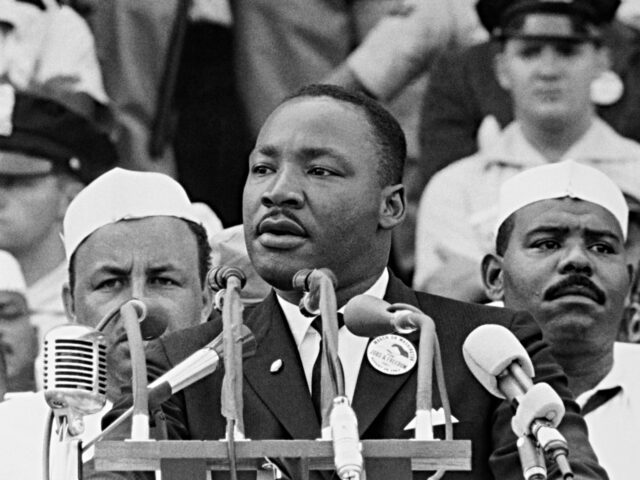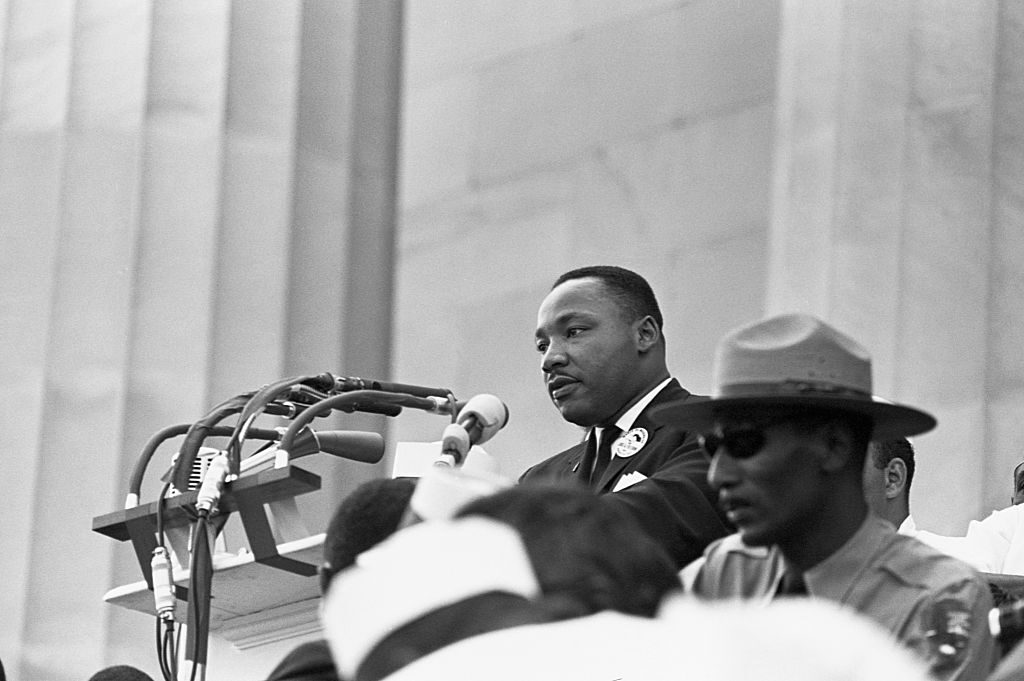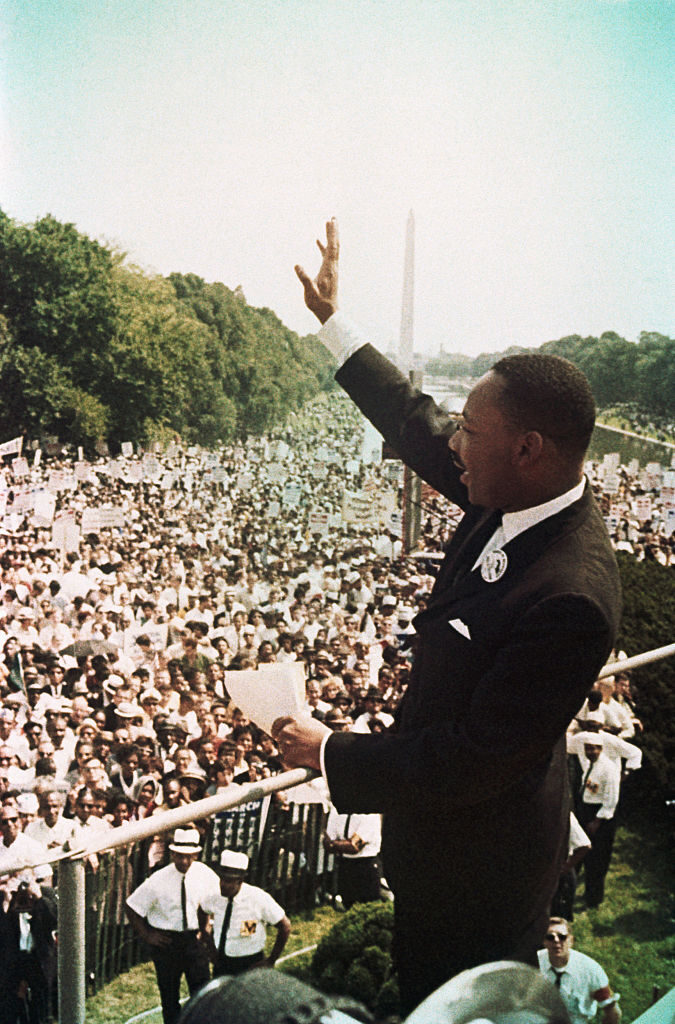The Podcast With RFK Jr. THEY Don’t Want You To SEE | Robert F. Kennedy Jr.
https://www.youtube.com/watch?v=-OywWuhgSIU
RFK Jr.: Remembering MLK Jr.
Martin Luther King Jr.: More Relevant Today than Ever
Why do we celebrate a holiday honoring a man who was arrested and jailed twenty-nine times, and was ultimately assassinated? What lessons can we learn from this man, Martin Luther King, Jr. and from an American society and institutions who seem to have forgotten his contributions that made him worthy of a national holiday?
Martin Luther King (aka MLK), a powerful pastor and speaker, was both the catalyst for and the central figure in the Civil Rights movement that extended from 1955 to 1968. From MLK’s sermons, speeches, and writings, we are struck by a man with an unusual discerning mind grounded in timeless truths. MLK was all about nonviolent action to bring about racial and social healing through truth, love, and peaceful debate and protest.
What is hard to come to grips with today is how the power, healing, and truth of his message could be overshadowed by today’s divisive and demoralizing so-called woke philosophies of Critical Race Theory (CRT) and Diversity, Equity and Inclusion (DEI) that divide rather than unite society. MLK stressed the importance of bringing people together through constructive dialogue and seeing all people as individuals made in God’s image. In contrast, those who have recently claimed to hold up the torch of civil rights, such as the Black Lives Matter (BLM) movement, generally do so through militant action, malicious language, and confrontation.
The woke movement in the United States is largely the progeny of BLM, an organization that was founded by Patrisse Cullors and Alicia Garza, who both self-identify as Marxists. For those who relate wokeness with progress, a gnawing question still haunts: What good ever came out of Marxism? While some newcomers to the philosophy might idealistically presuppose their cause is about a socialist utopia, Marxist rule in practice has a sad history of delivering poverty, corruption, and mass death across diverse cultures.
Were it possible to resurrect and transport King into the present, he would be shocked by the regression that has taken place in America in the three generations since he led the Civil Rights movement of the 1950s and 1960s. He would reject the eclipse of the group, gender, and ethnic identity evaluation paradigm over the individual merit and character-based approach for acceptance and advancement -- whether in school admission or hiring and promotion in the workplace. King would condemn Critical Race Theory (CRT) because it perpetuates negative racial stereotypes, albeit in a reversal, which denigrate the White race.
King recognized that the self-evident truth in the Declaration of Independence “that all men are created equal… with certain unalienable Rights, that among these are Life, Liberty, and the Pursuit of Happiness,” wasn’t realized in 1776, nor when the U.S. Constitution was ratified some 14 years later. Nor was Lincoln’s “Gettysburg Address” proposition “that all men are created equal” fulfilled through the Civil War’s emancipation of slavery.
 In King’s most famous “I have a dream” speech, delivered from the Lincoln Memorial in Washington, D.C. on August 28, 1963, it was as if the Almighty was calling America to rise up and fulfill its spiritual destiny. To the self-evident truth of all people having equal value, King added an equally timeless truth, that people “should not be judged by the color of their skin but by the content of their character."
In King’s most famous “I have a dream” speech, delivered from the Lincoln Memorial in Washington, D.C. on August 28, 1963, it was as if the Almighty was calling America to rise up and fulfill its spiritual destiny. To the self-evident truth of all people having equal value, King added an equally timeless truth, that people “should not be judged by the color of their skin but by the content of their character."
One of the timeless truths King referred to on numerous occasions, which also speak to us today, was Paul’s letter to the Romans, in which he said, “Do not conform to the pattern of the world, but be transformed in the renewing of your mind.” King drew on Thomas Jefferson’s statement, “I have sworn upon the altar of God eternal hostility against every form of tyranny over the mind of man.” He warned in a sermon as early as 1954, recorded in his book, Strength to Love, that, “If Americans permit thought-control, business-control and freedom-control to continue, we shall surely move within the shadows of fascism.”
Seventy years later, we have moved way beyond shadows and now live in a matrix of fascism and communism that effectively operate throughout most institutions within the United States under the camouflage and misnomer of being woke, enlightened, and inclusive.
Few American leaders have remained as clearheaded about the dangers of groupthink as King. He reminds us of Emerson’s words: “Whoso would be a man must be a non-conformist.” And drawing on Apostle Paul’s teachings, King implored that, “Any Christian who blindly accepts the opinions of the majority and in fear and timidity follows a path of expediency and social approval is a mental and spiritual slave.” King also commended those who went against the crowd, reminding us that, “The trailblazers in human, academic, scientific, and religious freedom have always been nonconformists… [so] in any cause that concerns the progress of mankind, put your faith in the nonconformist!”
King’s lesser-known speeches and sermons also provide prescient insight on the times in which we live. On numerous occasions, he quoted scripture about the need to be “wise as serpents, and harmless as doves,” arguing that people need to have a tough mind and a tender heart. He expressed concern that the “prevalent tendency toward softmindedness is found in man’s unbelievable gullibility.” King further stated that, “Few people have the toughness of mind to judge critically and to discern the truth from the false, the fact from the fiction…”
King was also critical of the media, stating that “One of the great needs of mankind is to be lifted above the morass of false propaganda.” He concluded this theme, with the warning that “a nation or a civilization that continues to produce soft-minded men purchases its own spiritual death on the installment plan.” Such counsel is more pressing and pertinent today than it was when he delivered it some 60 years ago.
Clearly there is much to learn from and reflect on in the life of Martin Luther King Jr. Most significant and formidable about the man was the unique, vital, and powerful role he played in the unfinished progress of America. Despite his flaws, he rose to the challenge of completing the course of redemption in American history. Nearly two hundred years after the vision expressed in the Declaration of Independence, and one hundred years after the Civil War and Lincoln’s Emancipation Proclamation, King fulfilled his redemptive mission, sacrificing his life to finish the work he described as making people, “free at last, free at last.”
Scott Powell is senior fellow at Discovery Institute. His recent book, Rediscovering America, was #1 new release in history for eight straight weeks at Amazon (https://www.amazon.com/dp/1637581599). Reach him at scottp@discovery.org
Image: Kheel Center
Television Academy Ranks MLK’s ‘I Have a Dream’ Speech, Moon Landing, Beatles Among 75 Most Impactful Television Moments

LOS ANGELES (AP) — The moon landing, the Beatles’ first appearance on American TV and the Rev. Martin Luther King Jr.’s “I Have a Dream” speech are among the 75 Most Impactful Television Moments as ranked by the Television Academy before Monday’s 75th edition of the Emmy Awards.
Academy members from the television industry collaborated with academics to cull eight decades of TV history and vote on the list that was revealed Friday. Atop it they put Apollo 11’s 1969 first landing on the moon, and Neil Armstrong’s declaration of a “giant leap for mankind.”
In second they put coverage of the 9/11 attacks on the World Trade Center, and in third the Beatles’ 1964 appearance on “The Ed Sullivan Show.”
King’s “I Have a Dream” speech, delivered at the March on Washington in 1963, is ranked No. 6. This year’s Emmy Awards, delayed four months because of Hollywood’s actors and writers strikes, comes on the MLK holiday.

Civil rights leader Martin Luther King, Jr. speaks at the 1963 Freedom March at the Lincoln Memorial. (Photo by © CORBIS/Corbis via Getty Images)

American Religious and Civil Rights leader Dr Martin Luther King Jr (1929 – 1968) waves to participants in the Civil Rights Movement’s March on Washington, Washington DC, August 28, 1963. (getty)
While the top of the list is dominated by news events, plenty of fictional moments from classic TV dramas, comedies and specials appear too, including Hawkeye bidding farewell to best buddy B.J., and Korea, in the 1983 final episode of “M.A.S.H.” (No. 8), Linus reciting the nativity story in 1965’s “A Charlie Brown Christmas” (No. 14), and, from 2007, the much-debated, cut-to-black final moment of “ The Sopranos ” (No. 36).
The rankings include one scene from a show nominated this year — the last moments of Nick Offerman and Murray Bartlett on HBO’s “ The Last of Us ” (No. 56). Offerman already won an Emmy for the special episode last week and “The Last of Us” is among the top nominees, along with “Succession,” “The White Lotus” and “Ted Lasso,” at Monday’s Emmys.
Also making the list are the episode of “Ellen” where Ellen DeGeneres reveals she’s gay (No. 13), the infamous “Soup Nazi” episode of “Seinfeld” (No. 27), the debut of Michael Jackson’s “Thriller” video (No. 48), Whitney Houston’s Super Bowl “Star Spangled Banner” performance (No. 65) and several moments from “Sesame Street” and “Mister Roger’s Neighborhood.”
The Emmys are being broadcast live from Los Angeles on Monday beginning at 8 p.m. EST on Fox.
No comments:
Post a Comment